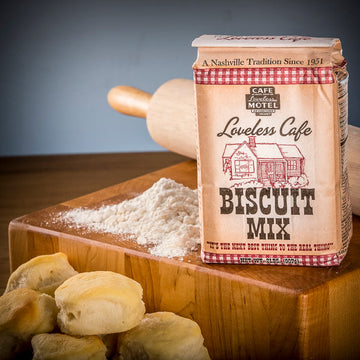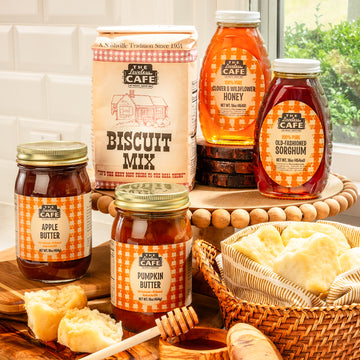Ham is the centerpiece of meals for breakfast, lunch, and dinner. So many opportunities for savory goodness exist that you must select the right ham to complete your creations. The distinction between country and city hams influences everything from taste and texture to cooking methods. Read on to find out the difference between country and city hams if you’re ready to take your meals to the next level.
What Is Country Ham?
Country ham is a type of cured ham, deeply rooted in the culinary traditions of the southern United States. Butchers and chefs typically dry-cure it with a mixture of salts, sugar, and spices, then age it for several months to over a year. This lengthy curing process results in a distinctively flavorful, salty ham that does not require cooking; many often serve it thinly sliced. Unlike its city ham counterpart, country ham boasts a more intense flavor and a drier texture.

The Curing Process
The curing process of country ham begins with the selection of high-quality, fresh hams which butchers rigorously clean and prepare for the curing stage. They then generously coat the hams with a dry cure mixture consisting of salt, sugar, and a variety of spices, such as black pepper. They may add nitrites to preserve color and prevent bacterial growth depending on the recipe. The mixture draws out moisture, concentrates the flavor, and initiates the preservation process.
Finally, they leave the hams to cure in a controlled environment, where they can carefully monitor the temperature and humidity. This process can last from a few weeks to several months depending on the desired outcome, with longer curing times contributing to a more intense flavor profile.
The Cleaning and Drying Stages
Following the curing stage, the hams undergo a thorough washing to remove the excess salt and any surface mold that may have formed—a natural occurrence in the aging process. After washing, butchers hang the hams to dry for a period that can last from a few weeks to several months.
This drying phase is essential for developing the ham’s texture and flavor. The controlled environment ensures that the hams lose moisture slowly, allowing them to develop the characteristically deep, rich flavors and firm texture that country ham is known for. Butchers meticulously manage the proper environmental conditions to prevent the meat from drying out too quickly and developing an undesired flavor.
The Smoking Process
It’s impossible to create the best country ham without the smoking process. Butchers smoke the hams at low temperatures over several days or even weeks using woods such as hickory, applewood, or oak. The wood infuses the ham with a subtle, smoky flavor for enhanced taste and preservation due to the antimicrobial properties of the smoke.
Once smoked, butchers leave the hams to age further, allowing the complex flavors and textures to mature to perfection. The entire process from curing to aging can take up to two years, requiring patience and expertise, for a deeply flavored country ham.
Traditional Preparation
There’s also an alternative method to preparing country ham for a meal. The traditional approach involves carefully soaking and cooking the ham before serving it. Chefs soak the ham in water for 24 to 48 hours, or even longer, to rehydrate the meat and reduce its saltiness.
Changing the water periodically during soaking helps to leach out some of the salt. Chefs then slowly cook the ham at a low temperature, either by boiling or baking, until it reaches a perfect tenderness. The result is a delectably rich and savory ham that pays homage to the art of traditional North American charcuterie, perfect for special occasions or gourmet dining experiences.

What Is City Ham?
City ham is a type of cured and smoked meat that you can often find in urban areas. This type of ham is usually the hind leg of a pig that chefs can cook, slice, and serve hot or cold. It has a distinct pink color and a salty flavor that makes it perfect for sandwiches or as a side dish.
City ham’s availability is one of its main characteristics. You can often find city hams in local delis, grocery stores, and restaurants due to the high demand in urban areas. Such convenience makes city ham an easy choice for those living in cities and looking for a quick and delicious meal option. Additionally, city hams often come pre-sliced and packaged, making them easy to store and transport.
The Brining Process
Let’s explore the brining process of city ham. Chefs immerse the ham in a wet brine—a solution containing liquid, salt, sugar, and spices. The process seasons the meat while retaining its moisture for a tender texture. The wet brine is crucial for giving city ham its characteristic juiciness and rich flavor.
The Curing Process
Curing city ham is a much shorter process compared to country ham, typically lasting only a few days. This brief curing time leads to a milder flavor and softer texture, ideal for those who prefer their meat less salty and with a hint of smoke. Therefore, city ham is a suitable choice for quick and flavorful weeknight meals. The combination of the short curing time and the wet brine positions city ham as a convenient and tasty option that aligns well with fast-paced urban living.
The Differences Between Demand and Availability
The demand and availability of country and city hams reveal much about regional culinary preferences and accessibility. City ham is a convenient option in urban settings because it’s a quick meal solution without requiring extensive preparation. The ease of storage, preparation, and consumption makes city ham a popular choice among a broad consumer base.
Country ham is deeply embedded in Southern cuisine and serves a niche market. Its preparation requires extensive curing and a nuanced understanding of its flavors—often limiting its appeal to connoisseurs and traditionalists, so it’s not as widespread as city ham. You’ll likely find country ham in specialty stores, at farmers markets, and on websites like The Loveless Cafe where we value our food products.
Our online store makes it possible to access country smoked meats from states beyond the southern U.S. We can fulfill orders within five to seven business days based on your location, so you’ll receive your delicious country ham swiftly.


